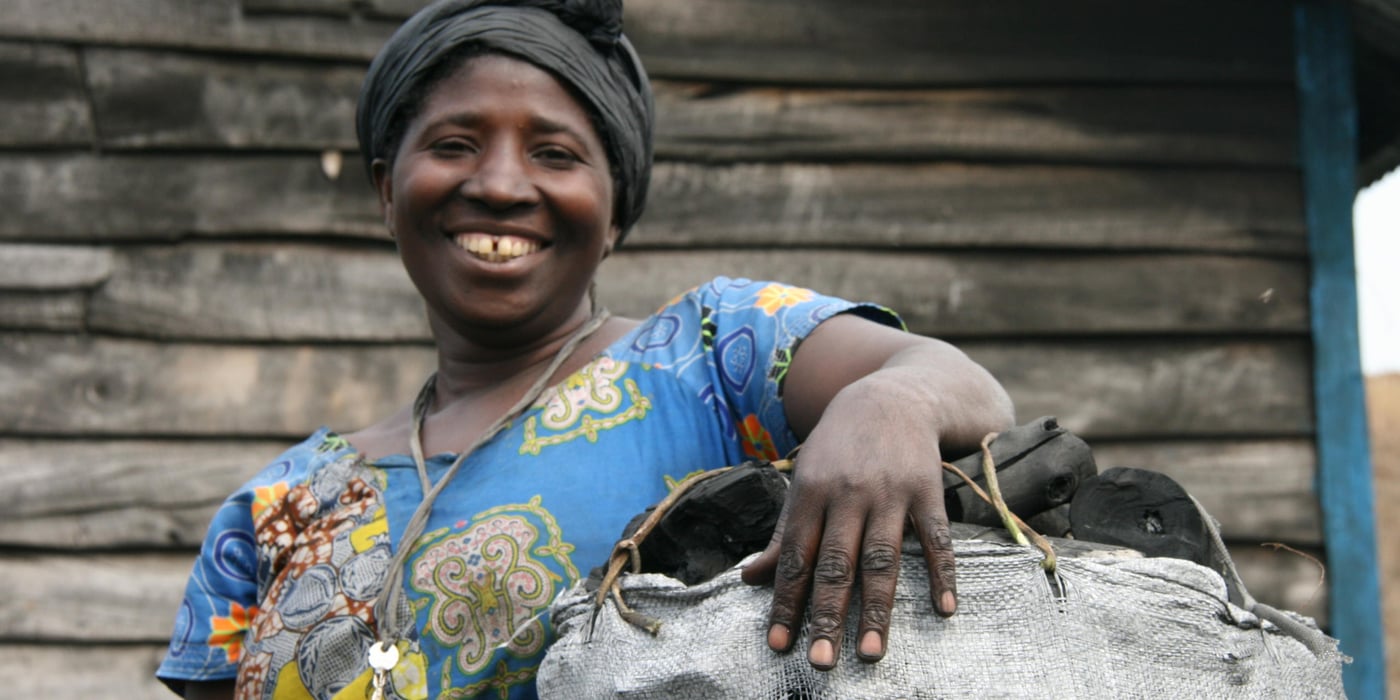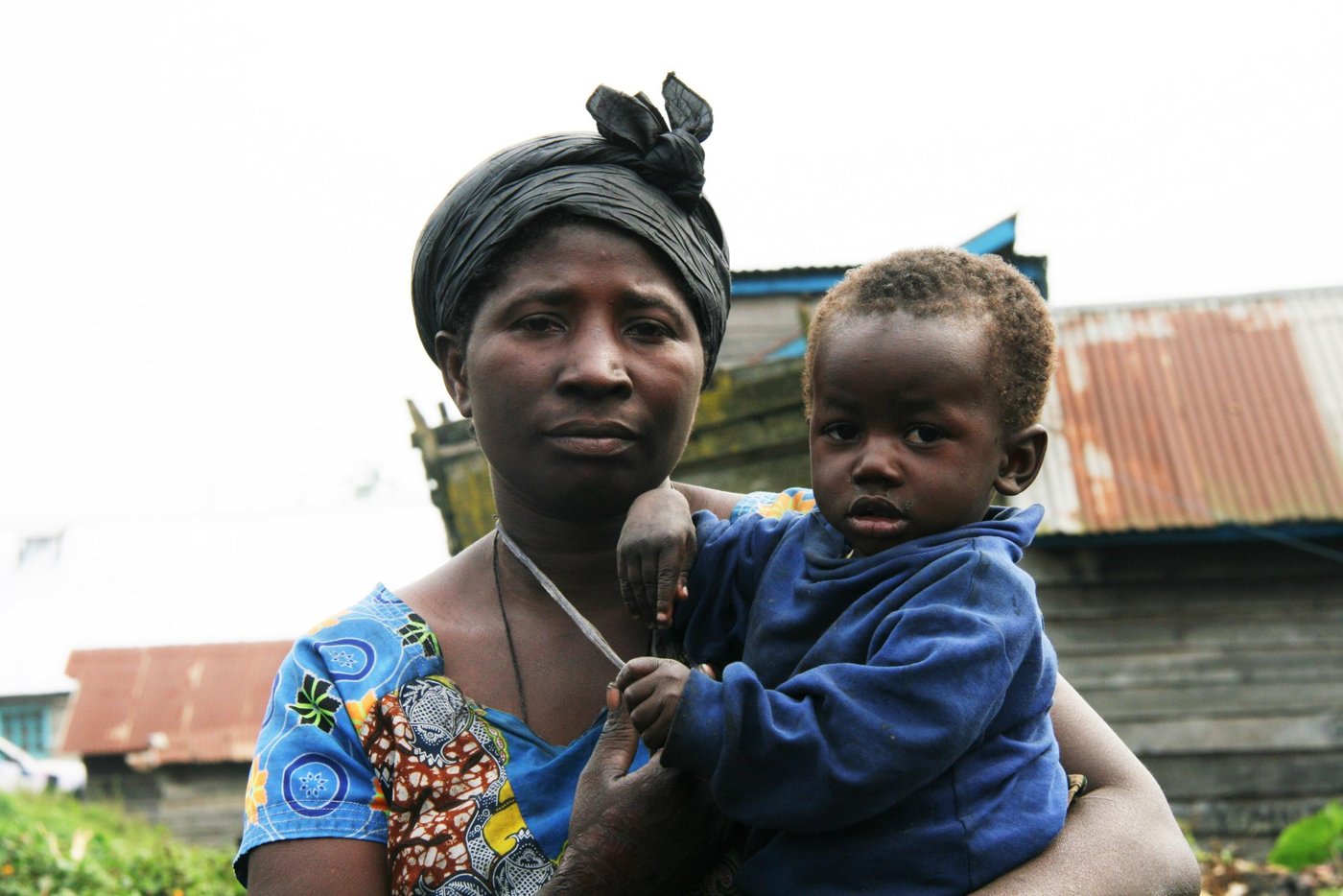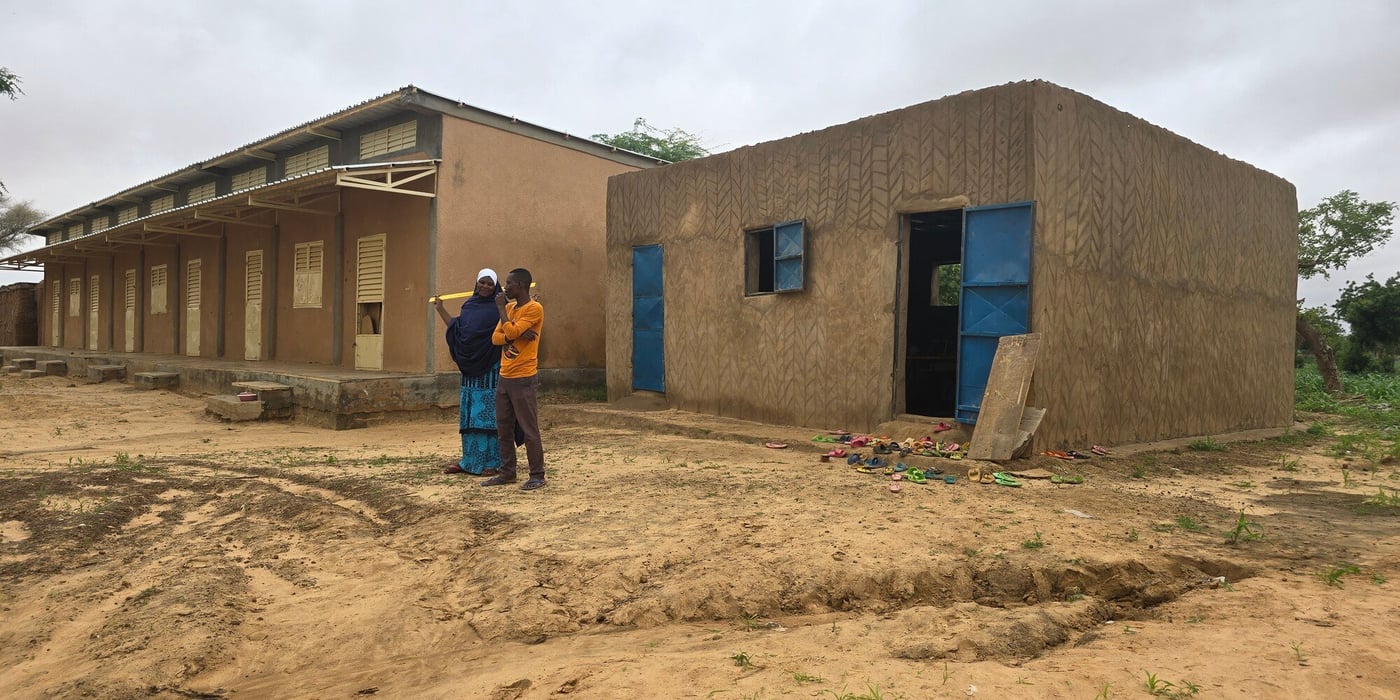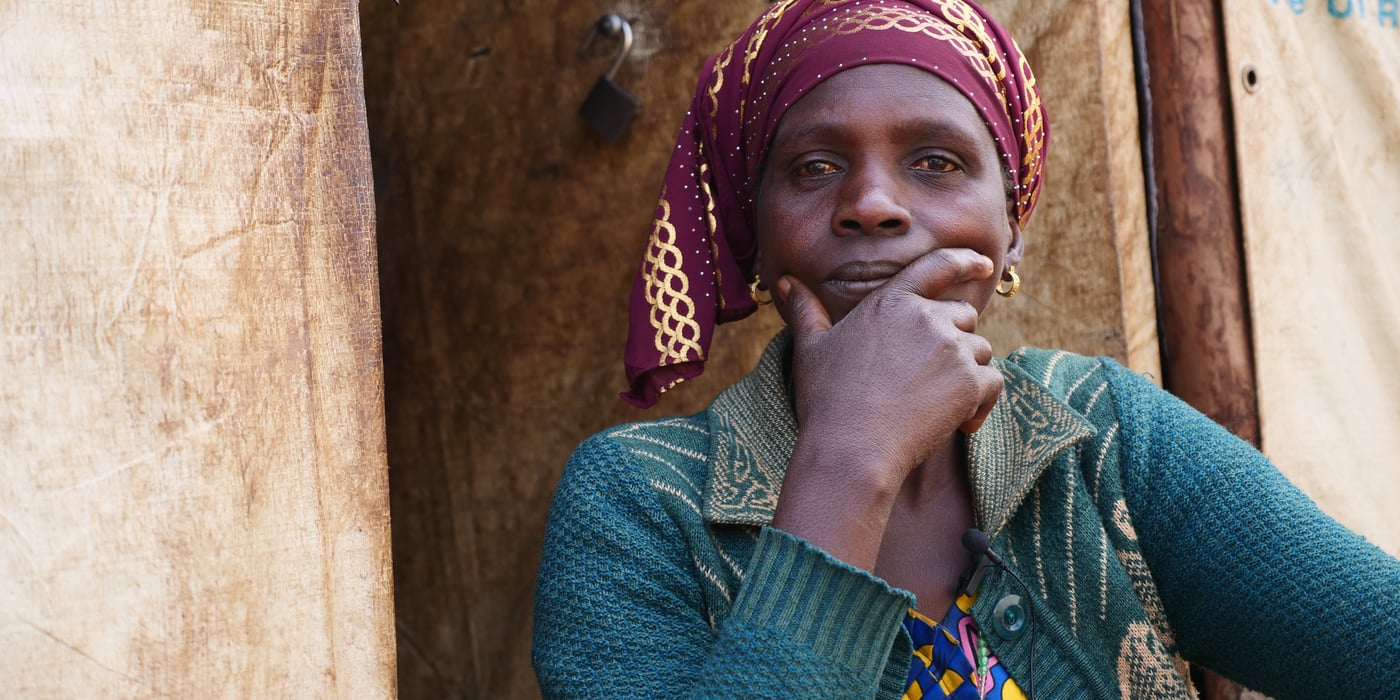
Thirty-six-year-old Bembeleza is the mother of seven children who sells charcoal in Kitchanga, a small town in North Kivu province in eastern DR Congo. For more than two decades, families in the province have been affected by violent intercommunal conflict and fighting between armed groups. Two years ago, Bembeleza fled to Kitchanga when fighting broke out in her home village of Lufunda, in the Masisi territory of North Kivu province.
In 2017, over 181,000 people fled their homes around the Kitchanga district, according to the United Nations. Many people remain too scared to return to their fields or properties. As a result, their living conditions have deteriorated drastically, pushing thousands of families into extreme poverty.
Before the war
The small villages around Kitchanga are surrounded by beautiful hills where people used to farm land and raise cattle. For many years, the area was known as a stable and peaceful place in the North Kivu province.
Before the war, Bembeleza had two fields she used to farm. She had eight pigs and harvested an average of 100 kilograms of beans every crop season. When she fled, she was forced to abandon all the possessions she had worked so hard for. During the clashes, her home was burnt and pillaged by armed groups.
“It was not easy”
“When I arrived in Kitchanga, it was extremely difficult to find food to eat,” Bembeleza recalls.
In many cities and towns in DR Congo, bare essentials like food and household items are available, but expensive. To cope, she had to turn to the heavy manual labour of farming the land of host community members for 1,500 Congolese Francs or about a USD 1 per day.
Despite the hardships, Bembeleza had to adapt in order to survive, and her story is not unusual. There are thousands of similar stories throughout Kitchanga.

Changing lives
Since February 2016, with funding from the Norwegian Ministry of Foreign Affairs (NMFA) and the Swedish International Development Cooperation Agency (Sida), the Norwegian Refugee Council (NRC) in DR Congo has developed an urban project in Kitchanga to assist vulnerable and displaced people. Thanks to this project, we were able to deliver conditional cash to 5,082 people in 2017.
“NRC’s support has changed my life,” says Bembeleza.
With the USD 100 cash she received, Bembeleza has been able to start a small business. She sells charcoal usually used for cooking, and earns an average of 15,000 Congolese francs, or USD 10 per week. As a result, Bembeleza can now pay her rent of USD 5 per month, as well as her children’s school fees.
No hope of return
“As long as people are still at risk of being killed, I cannot go back home,” she says.
The security in the villages surrounding Kitchanga is still uncertain and Bembeleza is reluctant to return home. Instead of going back, she is now striving to buy a small parcel of land in Kitchanga where she can build temporary housing.
A long-term solution
Our urban project in Kitchanga was created to offer practical approaches to long-term issues for people displaced in urban settings. The Kitchanga Urban Project combines food security, education and information, counselling and legal assistance activities based on the needs of displaced people living there, while providing conditional cash distributions for the most vulnerable and crisis-affected people in the town.



